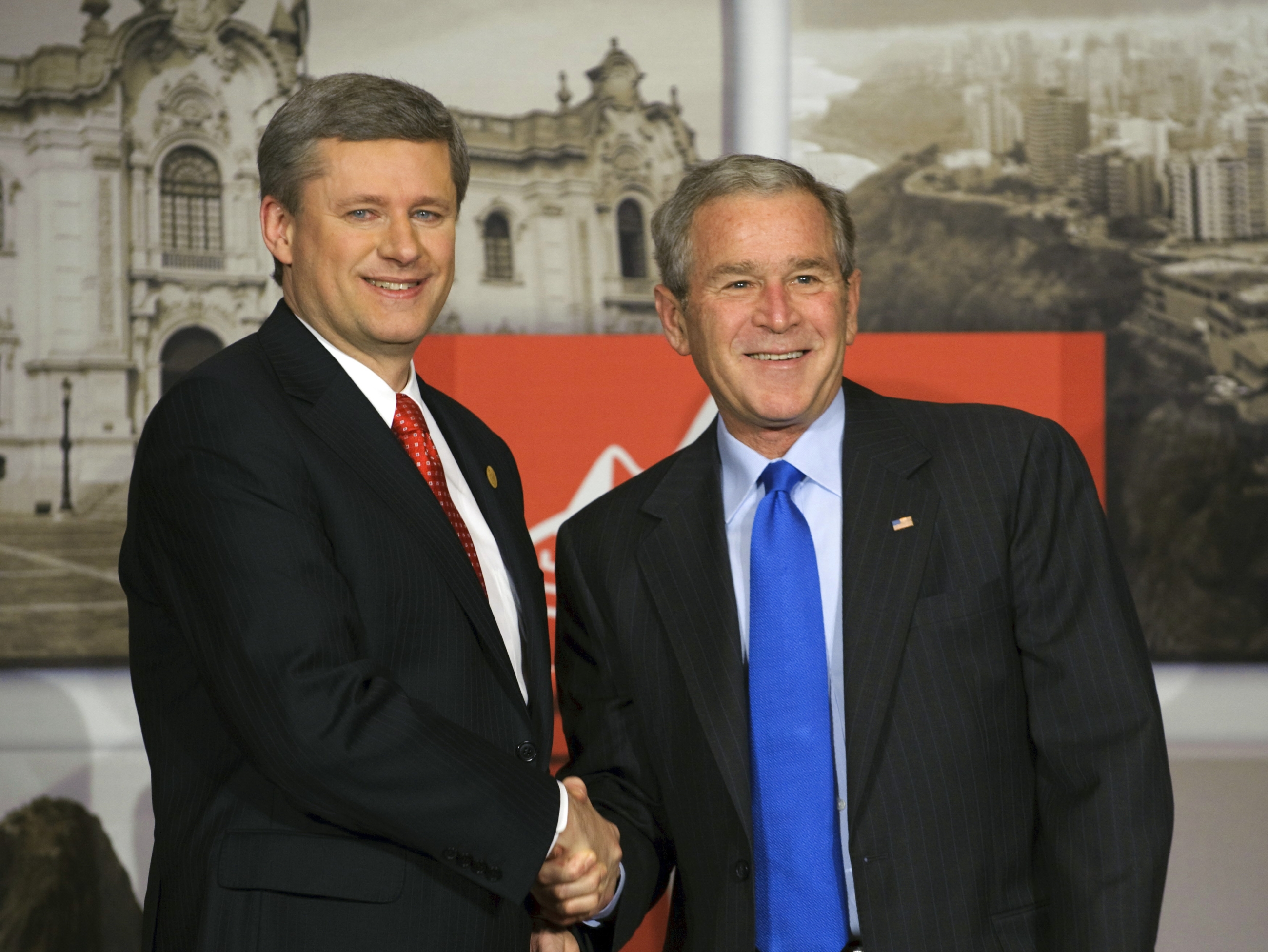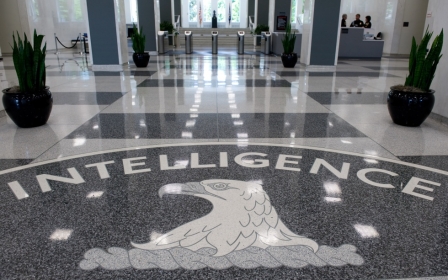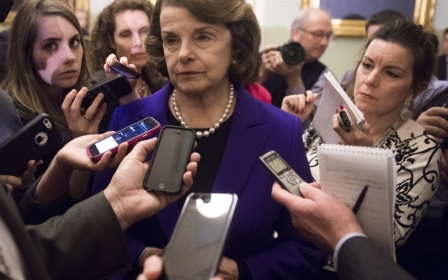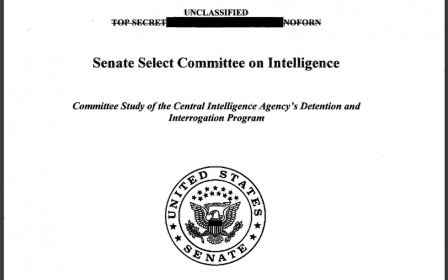CIA torture report a 'sobering and cautionary reminder' for Canada

MONTREAL, Canada – The findings of the recent US Senate report on CIA torture came as little surprise to Sophie Harkat.
The wife of Mohamed Harkat – an Algerian national who has languished in Canadian prisons and under strict restrictions since 2002 – has spent over a decade fighting to free her husband out from under a draconian, and seldom-used, “security certificate”.
In place since 1978 under Canada’s Immigration and Refugee Protection Act, security certificates allow the government to indefinitely detain permanent residents of Canada that “pose a serious threat” to the country, most frequently on the basis of secret evidence.
The CIA torture report shone light on Harkat's case last week, after a name familiar to the family - Abu Zubaydah - was peppered throughout the 500-page report. It confirmed a long-held belief that the Palestinian man (whose real name is Zayn al-Abidin Muhammad Husayn) was tortured by US officials, including being water-boarded at least 83 times.
Information collected under torture, Sophie told Middle East Eye, "has affected and ruined lives. People face serious consequences: some of them [are] detained for years, people [are] tortured… it’s very concerning. We need to strike a balance between justice and national security, and I don’t think we have a balance right now."
The US first argued that Abu Zubaydah, who was arrested in 2002 at the height of the “War on Terror”, was a high-level member of al-Qaeda in Afghanistan. The report outlined how frequent water-boarding rendered him “completely unresponsive, with bubbles rising through his open, full [mouth]”, and that his interrogation yielded no reliable information.
Still, Canadian officials used Abu Zubaydah’s testimonies in the issuance of security certificates against both Harkat, and Moroccan-born Adil Charkaoui, a resident of Montreal.
“Even in Canada, people are unaware that this is happening here. We’re no better than the Americans, really, because the principle of security certificates is pretty much the same as detainees in Guantanamo,” said Sophie, whose husband remains under a security certificate despite two Supreme Court challenges, and faces deportation to his native Algeria.
“You’re detained, you don’t know why, and you don’t see the evidence."
Sharing torture-tainted information
Following the release of the CIA report, Canadian human rights groups and opposition parties called on Ottawa to review its information-sharing policies, especially amid allegations that information the US obtained through the use of torture influenced a handful of high-profile Canadian national security cases.
Canada’s 2003 decision to block a Sudanese-Canadian, Abousfian Abdelrazik, from returning to Canada from Sudan, where he faced imprisonment, house arrest, and torture, was partly based on information related to Abu Zubaydah, for example.
The US argued that Abdelrazik had ties to Abu Zubaydah and al-Qaeda in Afghanistan, and he was placed on a United Nations Security Council no-fly list for terrorism suspects.
After prolonged court battles, Abdelrazik returned to Montreal in 2009. Subsequent reports revealed that his treatment was linked to information that Canada’s spy agency (Canadian Security Information Services, CSIS) leaked to Sudanese officials against its own regulations.
But despite calls for reform, Prime Minister Stephen Harper rejected the demand for a review of the system last week. “This is a report of the United States Senate," Harper said, referring to the Senate report on CIA torture. "It has nothing to do, whatsoever, with the government of Canada."
Jason Tamming, spokesperson for Steven Blaney, Canada’s Minister of Public Safety, told Middle East Eye in a written statement that Canada “does not condone the use of torture, and certainly does not engage in it”.
“The primary responsibility of Canadian security agencies is to protect Canadian life and property,” the statement read. “If we get a tip from any source that Canadians' lives are in danger, we will act to save those lives. We will continue to ensure that intelligence is reviewed and assessed by Canadian intelligence experts before it is acted upon.”
Still, many remain concerned, despite these assurances.
“We do need to reflect upon and review our practices because the US is one of our closest partners in the global counter-terror effort. If the US has been circulating information that’s contaminated or tainted by torture, the question is how much of that contaminated information was consumed by Canada and relied upon in some way?” said Sukanya Pillay, executive director of the Canadian Civil Liberties Association.
“I’m hard-pressed to see how [the report] has nothing to do with Canada,” she told Middle East Eye.
Lack of oversight
According to government directives issued in 2011, Ottawa authorised CSIS, the RCMP, Canada's Border Services Agency, Communication Security Establishment Canada and the Department of Defence to use or share information obtained through torture in “exceptional circumstances”, where a serious risk of loss of life, injury or damage is determined to exist.
The exception – the existence of which was only made public after an Access to Information Act request – “is in direct contravention of Canada’s international obligations to prevent torture, criminalise torture and to not be complicit in torture”, Amnesty International wrote at the time.
These guidelines were revealed after a commission of inquiry under Justice Dennis O’Connor looked into Canada’s role in the extradition of Syrian-Canadian Maher Arar. Arar was detained in the US in 2002 and secretly transferred to Syria, where he was tortured for a year.
The commission showed that RCMP officers provided the US with “inaccurate” information about Arar that “portrayed him in an unfairly negative fashion”.
“It is very likely that, in making the decisions to detain and remove Mr. Arar, American authorities relied on information about Mr. Arar provided by the RCMP,” stated the report, which urged Canada to put strict oversight into place to ensure its information-sharing policy with foreign states does not violate international regulations.
The Canadian government later apologised to Arar – who returned to Canada after a year in Syria – and provided him with $10m in compensation.
“This reality of Canadian complicity in torture and other very serious human rights violations during these years of the ‘War on Terror’ is undeniable, and overwhelmingly there has been absolutely no accountability or redress,” said Alex Neve, executive director at Amnesty International Canada.
Neve told Middle East Eye that the CIA report should serve as a “sobering and cautionary reminder” of what can happen without proper oversight, and urged Canada to strengthen its checks and balances, as perscribed under the O'Connor commission.
So far, however, Canada is “more or less giving a nudge and a wink” to incoming information that may have been obtained through torture, and outgoing information that may lead to torture, Neve said. “That’s government policy.”
‘The battle is not over’
For Adil Charkaoui – who won his legal challenge and had the security certificate against him withdrawn in 2009 – the Arar case is only one example of a pattern of Canadian complicity in torture. “The battle is not over,” Charkaoui told Middle East Eye.
He pointed to three Canadian citizens – Abdullah Almalki, Ahmad Abou-Elmaati, and Muayyed Nureddin – who are still seeking redress for Canada’s role in their detention and mistreatment in Syria and Egypt, and the case of former Guantanamo Bay inmate Omar Khadr as examples of continued state impunity.
A new bill that would grant CSIS expanded power – including the ability to operate internationally and protect the identities of CSIS informants - has also raised alarm, Charkaoui said.
“In my case… there wasn’t a system to filter information coming from torture. They really didn’t care,” he said. “You can’t say that you are cut off from the world and don’t know that in those countries… [abuses occur]. If you have intelligence, it hasn’t just fallen from the sky.”
Sophie Harkat agreed: “We have to fight for this all to stop. We’ve been fighting to abolish security certificates for almost 13 years now and I’m just concerned that if we don’t do something about this, it will just keep on happening.”
New MEE newsletter: Jerusalem Dispatch
Sign up to get the latest insights and analysis on Israel-Palestine, alongside Turkey Unpacked and other MEE newsletters
Middle East Eye delivers independent and unrivalled coverage and analysis of the Middle East, North Africa and beyond. To learn more about republishing this content and the associated fees, please fill out this form. More about MEE can be found here.




